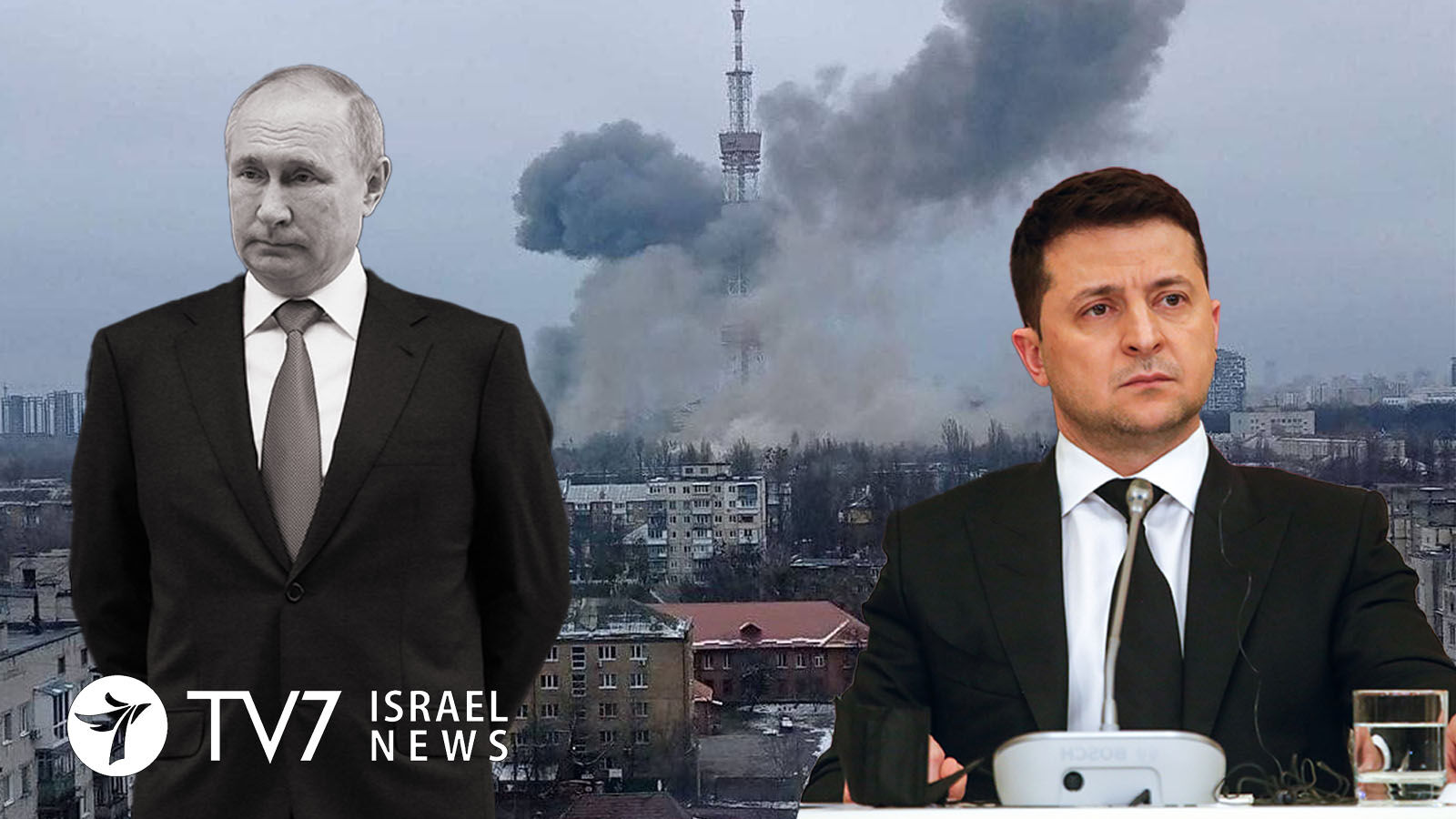Officials at the Prime Minister’s Office in Jerusalem confirmed the calls, but offered no other details.
By Erin Viner
The first call Israeli Prime Minister Naftali Bennett placed was to Ukrainian President Volodymyr Zelenskyy, who later commented on Twitter that they spoke about “Russian aggression.”
The Kremlin later put out a statement that Bennett also initiated a call with Russian President Vladimir Putin, who told the Israeli leader that Moscow’s security interests are among key conditions for resolving the the conflict.
Jerusalem has good ties with both Moscow and Kyiv.
“It’s the responsibility of the major players in the world to act rapidly to get the two sides out of the battlefield and on to the negotiation table,” Prime Minister Bennett said yesterday during a Q & A session during the Cybertech Global TLV 2022 conference at the Tel Aviv Convention Center.
“There is a terrible war going on in Ukraine. War is horrific; I’ve participated in five or six different conflicts as a soldier, a commander and later on as a security cabinet member. It’s just a horrible thing,” said Bennett, underscoring, “We in Israel have had our fair share of wars, and I can tell you one big lesson: Wars are easy to start and very difficult to finish. Things are looking bad on the ground right now, but it’s important to understand that if world leaders don’t act quickly it can get much worse. I’m talking about untold loss of life, total destruction of Ukraine, millions of refugees and it’s not too late.”
Prime Minister Bennett has offered to mediate the conflict between Russia and Ukraine at Kyiv’s behest. “The different players want us in a place that we are able to hold a dialogue with everyone,” Bennett told Israel’s Channel 13 on Wednesday.
“Israel is the only one civilized nation, a democratic nation, that is in a very good relations with both countries and with both leaders. So, that might bring the leverage; it might help Israel to be a balanced mediator,” Ukraine’s Ambassador to Israel Yevgen Korniychuck commented earlier this week.
There are large Jewish communities in both Russia and Ukraine, whose welfare is of key concern to Israel, which is carefully balancing its position on the crisis.
While long maintaining military coordination mechanism with Moscow to avoid unintentional clashes in neighboring Syria, where Russian forces have been present since 2015; Jerusalem has expressed solidarity with Kyiv, sent unprecedented humanitarian relief, and offered safe haven to people caught in the war zone.
Israel also co-sponsored a United Nations General Assembly Resolution on Wednesday to rebuke Russia for invading Ukraine that passed with an overwhelming majority of 141 member states. Only 5 nations, including Russia, Syria and Belarus voted against the measure, while 35 others including China abstained.
“Every vote in favor of the resolution and every signature of country that voted in favor, will be a historical reconfirmation of the (UN) Charter,” declared, Ukraine’s UN Ambassador Sergiy Kyslytsya, adding, “It is very easy, ladies, and gentlemen, to sign the charter at time of peace. It is the duty to sign and reconfirm and implement the charter at the time of war.”
Russia’s UN Ambassador Vassily Nebenzia reacted with outrage over the vote, saying that “a peaceful scenario for Ukraine could come about if the radical elements were more concerned about preserving civilian lives in the country rather than hiding behind them.” He went on to accuse the West of bearing responsibility for the situation in Ukraine, even going as far as to claim that Germany, France and Poland with US support were responsible for the ousting of former Ukrainian President Viktor Yanukovych.
Yanukovych, who sought to align Kyiv closer with Moscow in a clash with public demand to deepen ties to the European Union, is now in self-imposed exile in Russia.
In related developments, Prime Minister Bennett discussed the war between Russia and Ukraine among other issues during a phone call last night with Canadian Prime Minister Justin Trudeau.
